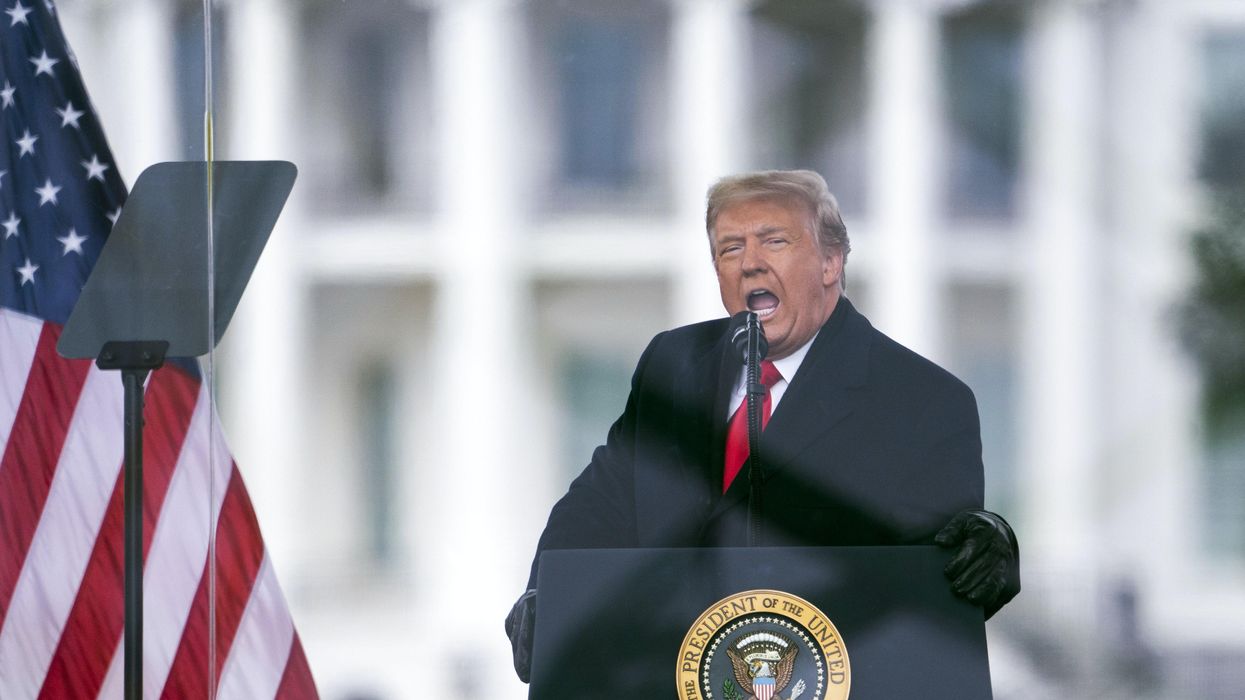January 6th Hearings Set To Tear GOP Apart In Primaries

Trump incites riot at Januray 6th rally
As Democrats warily eyed a tight Virginia gubernatorial race last fall, one key hope was that Donald Trump’s faithful would stay home the way they had in Georgia’s Senate runoffs in early 2021, delivering two precious seats and the chamber’s majority to Democrats.
But in Virginia, that turned out to be a false hope as Trumpers swarmed the polls, becoming a key part of a coalition that helped lift Republican Glenn Youngkin to victory.
Whether that same enthusiasm will carry Republicans to victory in November remains to be seen. But one big difference between Youngkin’s candidacy and the upcoming bids of other Republicans is the fact that Youngkin never faced a bitter primary. He was effectively chosen to run and then installed by the party apparatus, therefore avoiding what could have been a bitterly divisive primary in which Republicans shredded each other and turned off core parts of their base.
The fact that Youngkin neither had to claim a lane nor malign someone to his right or left gave him a lot of room to maneuver in the general election, thereby sidestepping the impossible choice of seeming sane enough to win over suburban voters or radical enough to inspire Trump’s cultists. On top of that, Youngkin also benefitted from having no history in public service and no corresponding voting record to defend. In other words, he was a blank slate, and that undoubtedly helped his ability to build a permission structure for both suburbanites and Trumpers alike to vote for him.
But on the Trump side of that equation, Youngkin needed only to avoid saying something that was completely disqualifying. Far from being demoralized, Trump voters turned out to be highly motivated. As GOP strategist and never-Trumper Sarah Longwell noted in one of her Focus Group podcasts last fall, Trump voters in Virginia were on a “revenge tour.” They couldn’t wait to get to the polls and vote in such large numbers that the election couldn’t possibly be “stolen” from them (falsely believing that 2020 had been).
One factor that might curb that enthusiasm next fall is for Republicans to field a series of primaries this spring and summer in which pro-Trump candidates and establishment Republicans grind down each other and their supporters until they’re barely a nub of their former selves.
The very public Republican row this week over the Jan. 6 assault on the Capitol, whether it was “legitimate” or rather a violent insurrection,” and who exactly speaks for the Republican Party and its base previewed the fact that an epic intra-party battle is brewing that could depress a sliver of GOP voters is indeed in the offing.
As the New York Timesreported:
Republican voters’ appetite for Trump-inspired talk of election audits and voting irregularities will be measured in contests throughout the spring and summer — in primaries for Senate in Alaska and North Carolina, for governor in Georgia and Arizona, as well as in dozens of congressional and state legislative races.
The races that could compound that internal disruption within the GOP are those taking place in states that will also be hosting high-profile Senate races, such as in Wisconsin, where Sen. Ron Johnson is running for reelection.
In Wisconsin, Timothy Ramthun, a state assemblyman who has been one of the state’s most aggressive promoters of election conspiracies, is expected to announce his campaign for governor on Saturday. On Wednesday night, he briefly published a website in which he pledged to conduct “an independent full forensic physical cyber audit” of the 2022 election — win or lose.
Trump’s base surely loves that promise, but swing voters who Democrats badly need to survive the worst this fall? Not so much.
Republican primaries for governor in Arizona and Georgia also promise to bleed over into important Senate races in those two states. The bid of former Republican Senator David Perdue to unseat sitting GOP Gov. Brian Kemp is already forcing bitter divisions in the state.
All of these rivalries that play out in critical swing state races are welcome developments that, in the best of all possible worlds, will confound GOP efforts at both the state and federal levels.
The conflict that broke out this week between the Trump and McConnell wings of the Republican Party—and the attendant hostilities—are a sign that the Republican Party is ripe for managing to alienate critical factions of voters that it must win over to retake the House and Senate in November, not to mention locking up governorships in key swing states in both the Rustbelt and Sunbelt.
Reprinted with permission from Daily Kos








